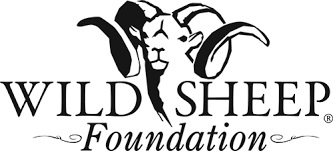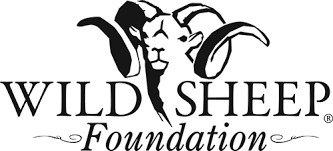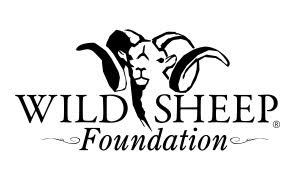Wild Sheep Foundation Expresses Concerns Over Dall’s Sheep in Alaska
Bozeman, MT — The Wild Sheep Foundation (WSF) today shared its concerns in a letter to the Alaska Board of Game (BOG) about the current management challenges the state faces in response to recent winter die-offs of Dall’s sheep in several regions of Alaska. The BOG is meeting to discuss future management options on October 19th.
“Losing wild sheep for any reason is our primary concern,” explained Gray N. Thornton, President and CEO of the Wild Sheep Foundation. “The Alaska Board of Game is doing the right thing by closely examining all the contributing factors. Our other concern is that the current situation is not treated solely as a harvest allocation issue between resident and non-resident hunters.”
Heavy snowfall in recent winters, followed by warming, melting, and then freezing temperatures in some regions of Alaska Dall’s sheep range, have made it hard and, in some cases, impossible for the sheep to get to their food sources. Many have died as a result.
“We have had our eye on this for some time,” explained Kevin Hurley, WSF’s VP of Conservation and Thinhorn Program Lead. “We’ve also had ongoing conversations with many close to the situation, including our Alaska Chapter, Alaska Fish & Game Department, Alaskan hunting outfitters, resident, and non-resident hunters, and WSF members with a keen interest in Dall’s sheep management.”
Hunter harvest of Dall’s sheep by resident, non-resident, and subsistence hunters is tightly controlled in concert with population trends. The complexity of the current situation involves a number of factors, including compromised lamb survival/recruitment, habitat quality considerations in the face of changing climatic conditions, travel/access management, predation, disturbance, recent disease challenges, and many more biotic and abiotic parameters.
“WSF believes that the recent downward population trend is not a harvest allocation issue or will be solved by making it one.” Hurley continued. “Many of our colleagues and we believe the focus should be on making rational decisions and implementing broad, tangible management actions to improve the status and trajectory of Dall’s sheep, both short and long-term.”
“A lot of us care about the health and status of this iconic species,” Thornton concluded. “Managing this precious resource and people’s expectations can be challenging. Catering to the interests of one group versus another as doing the right thing for the resource is backward. The resource should always come first. That’s what our successful system of wildlife management is built upon.” While no oral testimony will be taken, the BOG meeting can be listened to online at 1:30 p.m. Alaska time on October 19th by following this link.
###
The Wild Sheep Foundation (WSF), based in Bozeman, Mont., was founded in 1977 by wild sheep conservationists and enthusiasts. With a membership of more than 10,400 worldwide, WSF is the premier advocate for wild sheep and other mountain wildlife and their habitats. WSF has raised and expended more than $140 million on wild sheep habitat and population enhancements, education, and conservation advocacy programs in North America, Europe, and Asia to “Put and Keep Wild Sheep On the Mountain”®. These and other efforts have increased bighorn sheep populations in North America from historic lows in the 1950-60s of 25,000 to more than 85,000 today. www.wildsheepfoundation.org.




